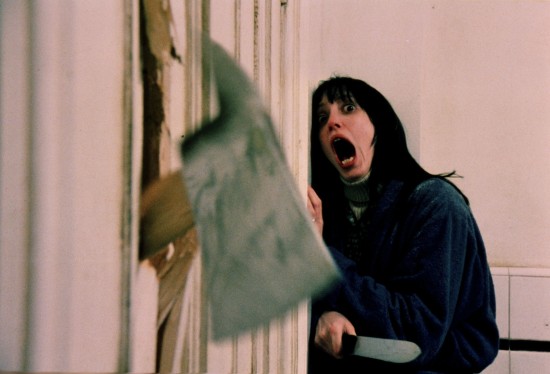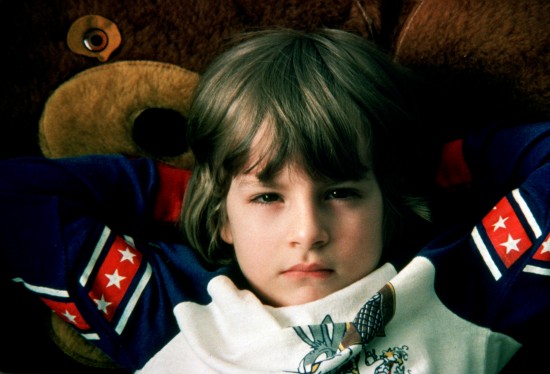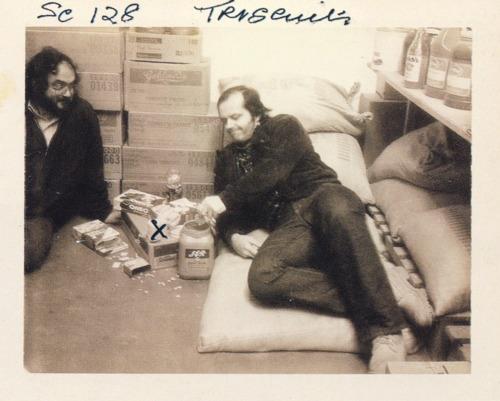Dir: Stanley Kubrick | Cinematography: John Alcott: Script: Stanley Kubrick/Diane Johnson | Cast: Jack Nicholson, Shelley Duvall, Scatman Crothers, Danny Lloyd | 144′ | Thriller US
Cold, hypnotic and profoundly disturbing, this tale of a family who come to grief during the isolation of one Colorado winter is burnt into the memory and will remain a standout film of the 20th century.
Based on Stephen King’s bestselling novel, some see Kubrick’s tale of a family man who takes a job as winter caretaker in the Overlook Hotel as a psychological drama, some a ghost story. The film’s enduring success is partly due to its ability to be whatever to whoever experiences it. The endless fascination with the film and its different interpretations for cinemas goers and critics alike has even spawned a documentary: Room 237: a mishmash of strands examining esoteric codes and arcane theories behind the screen original, with appeal largely to the anorak brigade.
Stanley Kubrick seeded his 14th feature with so many elements that build tension and spark off an unsettling reaction in the viewer before the action has even started. In other words, we’re actually ‘spooked out’ in anticipation. The desolate forests of snowbound Colorado in the awesome opening helicopter sequence; the weird emptiness of the brightly-lit hotel interiors; Danny’s unnerving psychic gift and his visit with a child psychologist (a new scene); a spine-chilling score; the talk of a previous tragedy in the hotel and the fact that the family are an unknown quantity add to its strange power,
Kubrick’s exacting standards often meant 50 takes to get the scene right and get the cast to give their all. Jack Nicholson was even said to remark: “Just because you’re a perfectionist, it doesn’t mean you’re perfect”. That said, he gives one of the most memorable turns of his career as Jack Torrance, a frustrated wannabe writer with anger-management issues whose metamorphosis from decent guy to demon has its amusing moments as in the scene with bartender Joe Turkel (extended here). Shelley Duvall, is perfect as a simpering homemaker and mother who was forced to remain ‘hysterical’ for nearly four months to comply with Kubrick’s demands on her. Danny Lloyd is extraordinary as a sensitive 7 year-old boy with psychic potential who has an imaginary friend Tony who speaks to him of impending tragedy.

Veteran actor Scatman Crothers had never heard of Kubrick until he was cast as Halloran, the kindly hotel chef who shares Danny’s extrasensory perception and calls it “shining”. Barry Nelson gives a suave and polished turn as Ullman, the hotel manager; and Philip Stone, who plays Grady the former caretaker and is the only character to dominate Jack Torrance (in a status switch in the mens’ room scene), is supremely in control of his chilling performance. Scored with a dissonant soundtrack using existing recordings by Bela Bartok, Gorgy Ligeti and Polish modernist Krzysztof Penderecki that presage doom from the title sequence until the credits roll, Kubrick creates a malevolent dystopia that will shine out for eternity as a signpost to horror. MT.
THE SHINING is now on re-release in selected arthouse venues


